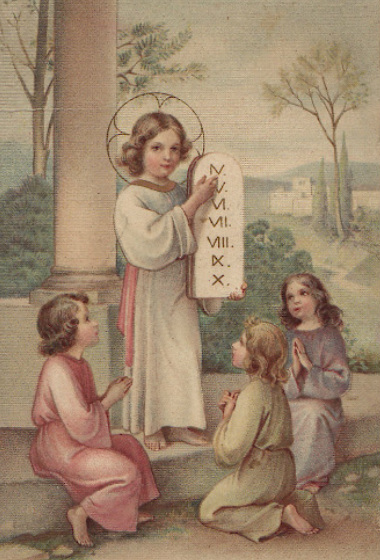
Conscience is an unerring tribunal, and we must either be guided by its judgments or fall into sin. But it often happens that human weakness and the wiles of the devil prevent us from clearly discerning the voice of conscience. We are, then, in the same embarrassment as the servant who hears but indistinctly the orders of his master, or, rather, under the same delusion as a man partially deaf who believes that he hears something different from what has been really said. How should one act who finds himself in this false position?
In the first place, and this is a general rule, it is never allowable to go against the conscience – that is to say, no one may ever perform an action which they believe to be guilty, or abstain from an action which they believe to be commanded. Therefore the one thing needful is to cultivate a clear, true, loyal, and upright conscience, and to do this, it is generally sufficient to seek the truth earnestly, and to resist all deceptions.
If, nevertheless, in spite of good intentions we cannot succeed in forming a conscientious judgment, we must seek and follow with simplicity the advice of some enlightened person, of a good priest, if that be possible, and be guided by his decision. There is not rule of conduct more practical than this, for many good people, whose conscience is tender and scrupulous, will often feel embarrassed and doubtful as to how they ought to act. If, by any misfortune, we have neither time nor means of seeking advice, let us form as conscientious a decision as we can, and strive earnestly to do that which we think to be right, in all cases when we cannot feel certain. When involved in absolute doubt, let us ever choose the safest side, and follow it to an extreme rather than risk the chance of offending God.
We do not hesitate to say that a clear conscience is the true secret of happiness. Happiness is deeply rooted in the heart of man: it is not shut up within the purse, nor is it to be attained by means of bodily indulgence. Those who enjoy an inward peace, who love God, and seek to please and serve Him, may be happy even in sickness and suffering, and amidst all the privations of poverty. Death itself wears a different aspect, and every day good Christians prove, by their calmness, their serenity, and their happiness at that supreme moment, the truth of what we have just said.
“This is a happy day for me,” said a poor soldier, condemned to death, to the priest who was assisting him and leading him to the place of execution, “a very happy day, father! I shall soon be with God, I am going home. My heart is so full of gladness, it seems as if I must be going to some joyful festival. I have sinned very heavily, but I hope God will show me much mercy.” This poor condemned soldier had fully made his peace with God during the two months which passed between the sentence and its execution. Moved to the deepest repentance, he had approached the sacraments of penance and the Holy Eucharist every week, and his conscience, transfigured by religion, was now in the enjoyment of a perfect peace, and a marvelous calm.
Do not wait until the last moment to purify your conscience. If it reproach you with some serious fault, do not harden your heart and deceive your own self; but rather repent of the evil of which it accuses you, and at once, like the prodigal son, arise, and return unto your Father. Summon all your courage; do not wait until it is too late. Go and make a good and sincere confession of your sins to some priest; from him you will obtain mercy, encouragement, and consolation, and he will restore to you the inestimable treasure of a quiet conscience, by pardoning your sins in the Name of Our Lord Jesus Christ. (In the case that we have no priest a Perfect Act of Contrition will suffice.)
“The Faith That Never Dies or the Priest of God in the Catholic Home” ~ Imprimatur 1900
 RSS Feed
RSS Feed